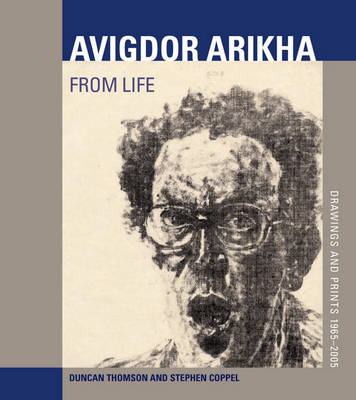Avigdor Arikha, born in Bukovina, a German-speaking part of Romania, survived the horrors of the Holocaust through the drawings he made as a young adolescent in the concentration camps. These came to the notice of the International Red Cross, which rescued him and helped him to reach a kibbutz in Palestine in 1944. After formal art training in Jerusalem, Arikha first came to Paris in 1949, where he mixed with the post-war Paris abstractionists and made lifelong friendships with Samuel Beckett and Alberto Giacometti. He now lives in Paris and Jerusalem. Highly acclaimed for his abstract works, in 1965 Arikha dramatically gave up painting and for the next eight years focused exclusively on drawing from life in black and white and on making prints in his studio using a special etching process. Although he returned to painting in 1973, his work has remained uncompromisingly figurative; it is executed directly in front of the subject and always in one sitting.
His subjects - whether self-portraits; portraits of his wife, the poet Anne Atik, his friend Samuel Beckett or fellow artists and musicians; intimate interiors, such as the corner of his studio flat in Paris or still-lifes of objects as seemingly mundane as a pair of shoes or spectacles - all reveal an acute intensity of vision. This catalogue features the gift of 100 works on paper made by Arikha to the British Museum in 2004, making the Museum the single most important public collection of his graphic work.
- ISBN10 0714126470
- ISBN13 9780714126470
- Publish Date 12 June 2006
- Publish Status Out of Print
- Out of Print 4 April 2012
- Publish Country GB
- Imprint British Museum Press
- Format Paperback
- Pages 144
- Language English
